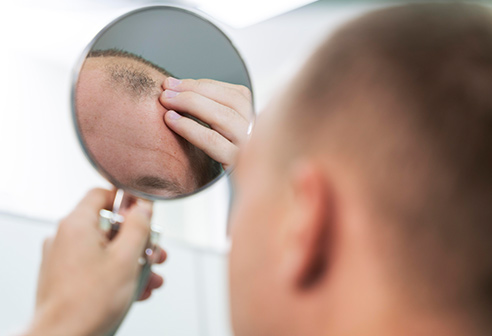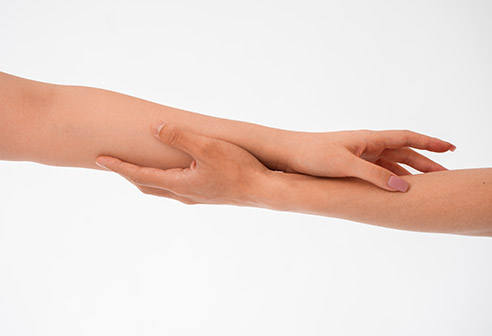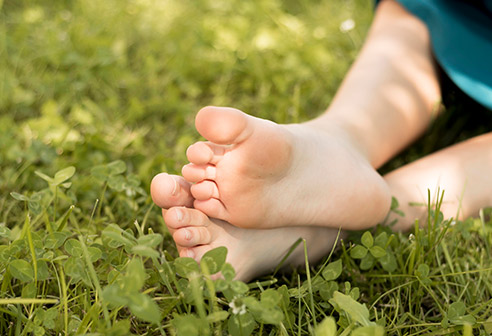
Hair is one of the most meticulously cared-for areas in personal grooming. Regardless of gender, hair loss is a serious problem. Hair loss, which is seen due to reasons such as zinc, B12, and iron deficiency, sinusitis, infection, intestinal parasites, genetic predisposition, hormonal disorders, stress, and seasonal changes; can sometimes also be a symptom of serious illnesses. Generally, in a healthy person, an average of 100-150 hairs can fall out per day. However, an increase in this number, noticeable thinning at the crown, or even 5-10 hair strands coming out with a slight pull indicates a hair loss problem. Dr. Lida Çiteli, your reliable address in medical aesthetics, explained what you wonder about hair loss.
What is Hair Loss?
A healthy person has an average of 100,000 hairs. In adults, hair can fall out during washing or brushing. Hair loss lasting up to two months is normal. However, exceeding this period may be a signal of an ailment. Generally, hair loss can start 3-4 months later, depending on the underlying triggering factors. When the factors playing a role in hair loss are treated with expert support, the person can return to normal within 6-12 months.
Hair's Lifespan is Divided into Three Phases
The average lifespan of a hair strand consists of periods of “growth, resting, and shedding.” After a long growth period, hair enters a resting phase for 2-3 weeks. Following this phase, the shedding stage begins. It severs its connection with the hair follicle and continues to shed within two or four months. New hairs are produced from the hair follicle to replace the shed hair, and this cycle continues throughout life.
Why Does Hair Loss Occur?
Each hair strand has a single cycle. Under normal conditions, the lifespan of each hair strand is 4-6 years. It is very natural for hair to fall out during this period. If this number increases during brushing or bathing, the situation should be taken seriously. The factors playing a role in hair loss should be identified. With the support of a physician, the factors leading to hair loss should be correctly determined, and necessary treatments should be applied.
Causes of Hair Loss?
Genetic Factors: The reasons for hair loss can vary in men and women. Hair loss is frequently seen in men in society. This condition may be due to genetic predisposition and hormones. These types of hair loss, considered chronic, develop further in old age, leading to baldness. In such cases, the shedding process can be slowed down with hair transplantation or supportive methods like mesotherapy and PRP treatment. Similar negative situations can also occur in women. In women, the hairline does not recede. However, there is thinning and sparseness in the hair. Individuals with a family history of baldness have a higher risk of hair loss. On the other hand, excessive stress, unbalanced nutrition, and hormonal problems also increase the risk of hair loss.
Skin Problems: Hair loss can be linked to skin or certain diseases. Conditions developing on the skin surface affect hair follicles. For example; eczema, acne, fungal infections, psoriasis, and lichen diseases, as well as excessively oily skin, can make hair loss inevitable. These types of hair loss can be treated by diagnosing and treating the underlying skin condition.
Faulty Diets: Hair loss is also related to eating habits. Faulty diets and insufficient protein intake can lead to hair weakness, increased breakage, and hair loss. Especially the synthesis of keratin, which forms the structure of hair, in the body is important. For this, adequate consumption of essential proteins is a must. When sufficient protein is not consumed, hair loss may begin. It should be remembered that hair, being a living organ, also needs to be nourished at an ideal level. This problem can be solved with a balanced diet.
Vitamin and Mineral Deficiency: Sometimes there may be no complaints about nutrition. However, for healthy hair, vitamins and minerals such as vitamin D, B12, folic acid, biotin, zinc, and iron must be present in the blood. Otherwise, since the hair is not nourished properly, shedding will become inevitable. Even without iron deficiency, iron supplementation that revitalizes hair can be provided with expert advice.
Hormonal Problems: Hormonal changes can cause hair loss. Hair loss can be added to symptoms such as menstrual irregularities, increased hair growth, excessive acne, and accelerated weight gain due to hormonal disorders. Especially after childbirth, hair loss may occur; however, this is considered normal for a few months. Hair loss can also be seen with the onset of menopause. It will be beneficial to consult dermatologists if hair loss persists for a long time.
Certain Diseases and Medication Use: Some diseases and the medications used to treat them can lead to hair loss. These diseases can be listed as follows: Thyroid gland, rheumatic diseases, hormonal imbalances, slimming pills, adrenal gland issues, insulin resistance, diabetes, birth control pills, febrile illnesses, blood loss, drug toxicities, severe trauma. The disease with which hair loss is associated is determined by tests performed by an expert doctor.
Childbirth and Chemotherapy Process: Hair loss can also occur during certain special situations and treatments. Hair loss may occur 2-3 months after childbirth. The condition is treated with supplements administered under expert supervision. On the other hand, hair loss also occurs in patients undergoing chemotherapy. Thanks to the drugs produced due to medical advancements in recent years, hair loss is less common in these individuals. In addition, when chemotherapy is completed, the shed hair tends to grow back.
Cosmetic Factors: Some hair care methods or incorrect applications also affect hair loss. For example; blow-drying with high heat, dyes used to change hair color, hair straighteners, as well as tightly tying hair or wearing inner bonnets can accelerate hair loss. The solution to these negative effects is to limit these applications and perform them more consciously.
Stress and Depression: Stress, which directly or indirectly triggers many diseases, also affects hair loss. Furthermore, hair can also fall out due to depression, anxiety, psychoses, and the medications used to treat these psychological disorders. Hair, being a living organ, can be affected by many factors in daily life. Sometimes things may not be going well in a person's life. Especially, there may be another underlying disease causing hair loss. In such cases, an expert should definitely be consulted.



